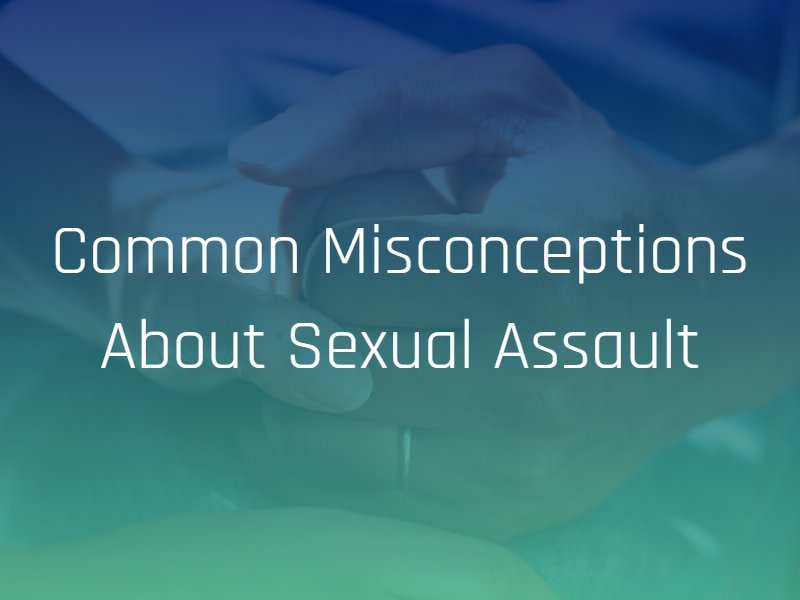Although sexual assault occurs at high rates throughout the United States, it is a widely misunderstood crime. Our societal views, personal prejudices, and glamorization of sexual violence in the media can all contribute to significant misconceptions people have about sexual assault.
These misconceptions can cause serious harm, especially to survivors who try to identify their experiences and seek help. By understanding the truth about sexual assault, we can disrupt these myths and help build a stronger understanding within our communities about sex, consent, and violence. Here are a few of the most common misconceptions about sexual assault.
#1: Sexual Assault Is Sex
Many people assume that sexual assault is a form of sex because it involves sexual activity. The truth is that sexual assault is an act of violence, not sex. Assault occurs because the perpetrator exerts power over the survivor, taking away his or her ability to consent and his or her autonomy over his or her body.
Sex has to be consensual, and all parties must give their free and informed agreement to sexual activity before it begins. If consent is not present or the perpetrator obtains consent through force, threat, coercion, or incapacitation, it is sexual assault.
#2: Most Sexual Assaults Are Committed by Strangers
It is a common narrative that only strangers commit sexual assault, especially in movies and television shows. However, the statistics paint an entirely different story; according to the Rape, Abuse, and Incest National Network (RAINN), 8 out of every 10 rapes are committed by someone the victim knows.
The perpetrator can be an acquaintance (39%), a former or current intimate partner (33%), or even a relative (2.5%). Only 19.5% of the perpetrators of sexual assaults are strangers. Because of the existing relationship the survivor may have with the perpetrator, they may choose not to report the crime.
#3: If the Victim Didn’t Fight Back, It’s Not Assault
According to the University of Michigan, there are three main neurological responses to danger: fight, flight, and freeze. Some survivors of sexual assault may actively fight back against their perpetrators, others may try to escape, and many survivors may freeze and wait for the assault to be over.
Approximately 50% of survivors experience tonic immobility, or the freeze response, during an assault. An act of sexual violence is not consensual simply because the survivor did not fight back. Depending on the situation, it may feel safer for the survivor to freeze rather than fight back and risk serious injury or death.
#4: Only Women and Girls Experience Sexual Assault
Women and girls make up the majority of victims of sexual violence — according to RAINN, 90% of adult rape victims and 82% of minor rape victims are female. However, men can experience sexual assault too, and far too many people believe that this isn’t true.
According to the organization 1 in 6, scientific evidence shows that approximately 1 in 6 American men have experienced sexual abuse and sexual assault. This statistic may be even higher, since many men choose not to report these crimes due to stigma, ostracization, and societal barriers.
#5: Sexual Violence Is Caused by Alcohol
While many acts of sexual assault happen in social settings with alcohol involved, drinking is not the cause of sexual violence. Millions of Americans drink alcohol every year and still refrain from sexually assaulting another person.
The only people who use alcohol as a tool to assault others are perpetrators of sexual violence. Many abusers wait for a person to become too incapacitated to consent, and use this incapacitation as a way to commit the assault.
Although many people hold these misconceptions about sexual assault, many others are performing significant work to help survivors seek justice and to end the stigma surrounding sexual violence. By dismantling these myths, we can encourage more survivors to seek help and heal from this traumatic experience.
If you are a survivor of sexual assault, help is available and you are not alone. If you are unsure where to begin, speaking to a sexual assault attorney with a history of advocating for victims can help. Contact your sexual assault lawyer following the assault to learn more about your legal options, and to begin building your pathway to justice.

